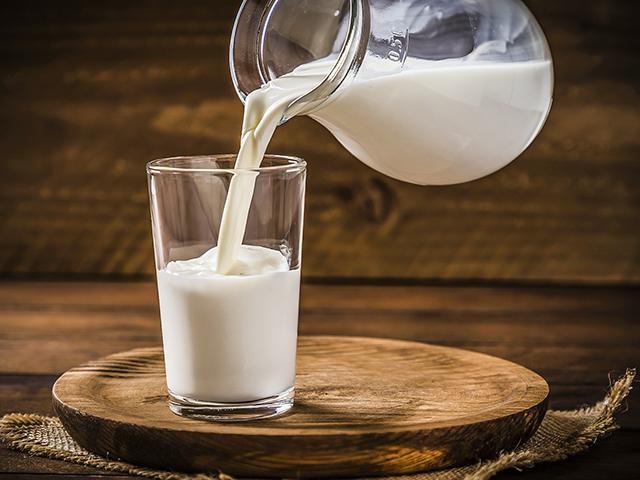Ask the Vet
Raw Milk: Safe To Drink?
READER: Our neighbors have a few backyard dairy cows and are selling raw milk. They tell me it's safe and better for us than commercial milk. Our daughter is a nurse, and she's told us it can be dangerous and not to drink it. What do you think?
Dr. McMillan: Like most things these days, there are at least two sides to this issue.
Growing up, we had two cows we milked every day: Molly and Sweet Milk. I named the latter in case you didn't guess. We also left our dinner on the stove until suppertime.
Times have really changed. Now, dinner is at night, and almost no one has supper anymore. There is also a lot more concern today about food safety, probably because we know more now than we did then.
Let's start with some facts as we review the differences between raw milk and most commercially available milk. The milk we buy at the store has been both pasteurized and homogenized.
Homogenization is a process used to reduce the size of fat globules, or the cream, that would otherwise separate out and rise to the top. Homogenization is a way to make sure this fat is evenly distributed throughout the milk.
P[L1] D[0x0] M[300x250] OOP[F] ADUNIT[] T[]
Pasteurization is a process that kills potential pathogens in the milk. Most commonly, this involves heating milk to a specific temperature for a short time.
Pasteurization was introduced when brucellosis and tuberculosis were commonly transmitted through the drinking of raw milk. These diseases are rare today, but they are not gone. We also have to consider E. coli, listeria, salmonella, campylobacter and other pathogens that can contaminate raw milk.
Most experts, including those at the Centers for Disease Control and Prevention, the Federal Drug Administration the USDA, most medical and veterinary groups, and many dairy groups oppose the sale and consumption of raw milk.
But there are also groups that are equally passionate about the safety and benefits of raw milk. The Raw Milk Institute, for example, reports that "numerous scientific studies have shown that raw milk is correlated with decreased rates of asthma, allergies, eczema, otitis, fever and respiratory infections." They go on to state that raw milk aids in recovery from antibiotic use and provides gut-healthy probiotics and enzymes.
The groups that oppose the drinking of raw milk question those benefits and the studies supporting them.
Ultimately, everyone must make up their own minds. I've looked at studies on both sides of the issue, and I personally would not drink raw milk. I also no longer eat raw oysters, and we put our leftover lunch in the refrigerator until dinnertime. Times change, and for me, the risks of old practices are just not worth it.
If you're looking for more information online, visit https://www.healthline.com/…
VET TIPS AND TRICKS:
Be Prepared. While I never made it past Cub Scouts, the Boy Scout motto certainly has applied to most areas of my life as a vet. In medicine, we have crash carts, or crash boxes, that hold all the things we might need in an emergency.
In my line of work, calving problems are one of the more common emergencies. Last year, in my home herd, we used a calving-ease bull on our heifers. Mother Nature later reminded me that the "E" in EPD means "expected," not guaranteed. We had to assist more than 50% of the heifers bred to that bull.
I created an at-home "crash bucket" and put in it everything I needed to deliver a calf: surgical scrub, disinfectant, a half-gallon jug for water, paper towels, OB gloves, lube, chains, head snare and handles.
I also recommend having a colostrum replacer and an esophageal feeder on hand during calving season just in case the newborn needs supplementing.
**
-- Please contact your veterinarian with questions pertaining to the health of your herd. Every operation is unique, and the information in this column does not pertain to all situations. This is not intended as medical advice but is purely for informational purposes.
-- Write Dr. Ken McMillan at Ask The Vet, 2204 Lakeshore Dr., Suite 415, Birmingham, AL 35209, or email vet@progressivefarmer.com
[PF_0522]
(c) Copyright 2022 DTN, LLC. All rights reserved.




